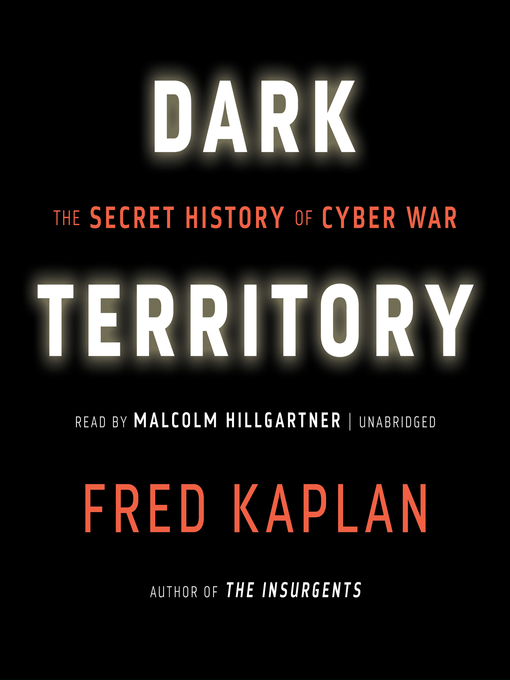‘Dark Territory: The Secret History of Cyber War’, is written by Fred Kaplan, a distinguished Professor at Queens College and columnist for Slate. He is a Pulitzer Prize winner in journalism and writes extensively on national security issues. He is the author of many books including ‘The Wizards of Armageddon’, ‘Daydream Believers’, ‘The Bomb’ and ‘The Insurgents’ among others.
Kaplan has examined the change in the nature of warfare and the introduction of a new battlefield called cyber war. The book narrates a history of the evolution of technologies from earlier Advanced Research Projects Agency Network (ARPANET) to the current. Policies that have led to significant development of Cyber Space as a new area of war in the international arena have been covered by the author.
The book consists of fifteen chapters, starting with President Ronald Reagan’s questions to General Vessey, the then Chairman of the U.S Joint Chiefs of Staff, after watching the movie War Games. The President’s questions set the stage for his first national security decision directive, NSDD 145 on information systems security. The author continues through various debates on cyber technology under successive presidential administrations.
The rich history of communications’ interception dating back from the American Civil War to World War II has been described. He also describes the Cold War days of tapping phone lines and intercepting radio and microwave transmission to the current age of information warfare. Importantly, he explains the history of the internet and Willis Ware’s warnings about the risks of networking computers and the expansion of the internet carrying global risks.
US government leaders who played key roles in the development of cybersecurity policy are also part of the discussion. Similarly, the subsequent rise of cyber offences as an integral part of military operations under the US Cyber Command has been delineated. Furthermore, the author elaborates on the role of the National Security Agency (NSA) to shape the policy decisions on the country’s cyber security.
Similarly, he provides a brief insight into internal power struggles with competing interests among various government agencies such as the NSA, CIA, FBI, and US Department of Defense.
Read More: The Spymasters: How the CIA Directors Shape History and the Future
Likewise, the account of Edward Snowden and subsequent investigation make the reader aware of weak checks and balances in government institutions. The book further raises ethical questions about information privacy and government decisions under the pretext of national security that affects the social fabric of society.
Moreover, the focus is on proving that cyberspace not only concerns government and private institutions but also individuals who are vulnerable at the same par. He narrates the stories of different cyber-attacks emanating from China, Russia, Iran, and North Korea aimed at the US or American cyberattacks against adversaries such as the Stuxnet cyber-attack on Iran’s nuclear program.
He emphasizes the intriguing lesson that the United States can take advantage of the cyber vulnerabilities of its foes, but because it also relies on digital infrastructure, its enemies may also do the same.
Similarly, the detailed discussions of the risk attached to various governmental and private sector entities owning computers and network infrastructure, as well as the risk to the critical infrastructure, such as power plants, dams, etc. provide a good point to understand the level of vulnerabilities in digital infrastructure.
Read More: Nuclear Weapons and Deterrence Stability in South Asia
Technology continues to advance, however, there exists no guarantee to keep such large infrastructure safe and secure from cyber-attacks. The rapid advancement in technology has led attackers to evade installed cyber defence mechanisms.
Dark Territory is a fascinating read which offers the history of cyber warfare by recounting certain events, policy discussions, investigations, and interactions. It is informative material to read and understand the history of cyber policy and its application as a means to wage war against adversaries. The author had done a good job of informing the reader to question cybersecurity at the personal and national levels.
About Author
Syed Ali Abbas is a researcher at the Center for International Strategic Studies, Islamabad (CISS). He tweets @smalinaqvi05
- Global Defense Insighthttps://defensetalks.com/author/umair/
- Global Defense Insighthttps://defensetalks.com/author/umair/
- Global Defense Insighthttps://defensetalks.com/author/umair/
- Global Defense Insighthttps://defensetalks.com/author/umair/













